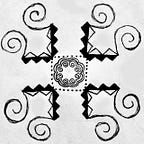Someone on Twitter shared a Tweet that I resonated with: A broken relationship with your mother will fuck you up way more than a broken relationship with your father. This may not apply to every single person, but it definitely applies to me.
It’s been many years, I’ve been through so much, and emotionally, I have felt even more. If I think over all the memories, I can see the arguments, disagreements, and dissent that led to our fallout: me joining and staying in marching band in high school; changing my majors in college from Pre-Nursing to Liberal Studies to finally Women’s Studies; visiting my ex who lived one hour away without permission; traveling out of the state… Be that as it may, I feel as though my mother knows that we have a complicated relationship, but she is simultaneously in denial of it. As a result, this makes reconciliation seem almost impossible.
As a second-generation Hmong American, I find it difficult to address my relationship with my mom, and ultimately my parents. They and my grandparents were refugees from the Secret War, so to me, all I can think about is: How could I be so ungrateful for the life that they have given me here in America? I have a roof over my head, food on the table, and a car I can drive. I admit that I am very privileged, but the elitism that exists in my household is suffocatingly toxic. Nonetheless, I am and will always be very grateful to my parents and grandparents for their sacrifices. Without a doubt today, I am proud to be Hmong.
Still, I cannot seem to let go of the resentment and grudges that I hold, especially towards my mother. Womxn to womxn, I had unconditional trust that she would be my support system. Maybe this was my mistake? She is intelligent, “Americanized,” and the bread winner of our family. It must have been my wishful thinking and assumption that since she was these traits and more, that she might have been able to learn to understand me, or at least try to. In her defense, mental health and mental illnesses are undervalued topics in the Hmong community, so she wouldn’t know how to go about it. Also, I guess sometimes I forget that she too is a Hmong womxn — she is also held to strict patriarchal standards, arguably, maybe even more heavily if looked through the lens of her generation, and her additional roles as a wife, mother, and daughter-in-law. This is where it pains and confuses me to blame her actions. She, like me, is also a Hmong womxn stuck between two worlds: the American and Hmong worlds.
Ultimately, though, it’s hard to have an honest and open conversation with my mother. She likes to be right all the time. She’s different at home versus in public. Nothing seems to ever be good enough for her, even if it was an accomplishment. She will promise something, but not go through with it, feigning or forgetting about it — even though it was such an important conversation, such as when I was 14 and opened up about my feelings of depression, wherein she promised to spend time with me figuring it all out.
. . . . . How do you speak with someone who feels self-righteous? How do you navigate a constructive conversation when you’re up against two clashing cultures, with one promoting independence and the other enforcing dependence? How do you respond to someone who is an emotional and mental abuser and makes you feel like your life, goals, and passions are meaningless — who says that they can’t believe anything you say because you don’t talk to them anymore? But what’s there to talk about when the other person reacts instead of responds? What’s there to share when the other person doesn’t share your joy or even try to express satisfaction with a faint smile? What’s there to tell when the other person may have already disowned you in their heart years ago? At this point, everything seems futile. My only self-care now is to type out my flusters for the internet to read. Maybe some will empathize while others may patronize.
Nevertheless, this is my story.
